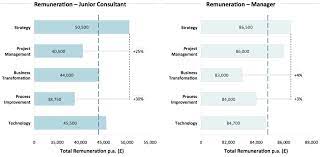The Importance of Effective Management in Business
The Importance of Effective Management in Business
Management plays a crucial role in the success of any business. It involves coordinating and overseeing the activities of an organisation to achieve its goals efficiently and effectively. Good management is essential for ensuring that resources are optimally utilised, employees are motivated and productive, and the business operates smoothly.
Key Aspects of Effective Management:
- Leadership: A good manager should be a strong leader who can inspire and motivate their team to perform at their best. Effective leadership sets the direction for the organisation and creates a positive work environment.
- Planning: Strategic planning is vital for setting goals, allocating resources, and defining actions to achieve objectives. Managers need to develop clear plans that guide the activities of their teams towards success.
- Organising: Organisational skills are essential for structuring tasks, roles, and responsibilities within the business. Proper organisation ensures that work is coordinated efficiently and that everyone knows their role in achieving common goals.
- Communication: Clear communication is key to effective management. Managers need to convey information clearly, listen actively to their team members, and foster open dialogue within the organisation.
- Decision-Making: Managers must make informed decisions based on data, analysis, and critical thinking. Good decision-making leads to better outcomes for the business.
- Problem-Solving: Effective managers are adept at identifying issues, analysing root causes, and implementing solutions. They need to be proactive in addressing challenges that arise in the course of business operations.
The Impact of Good Management on Business Performance
A well-managed business is more likely to achieve its objectives, adapt to changes in the market, retain talented employees, and maintain a competitive edge. Good management fosters innovation, collaboration, efficiency, and employee engagement – all of which contribute to long-term success.
In conclusion, effective management is a cornerstone of successful businesses. By developing strong leadership skills, planning strategically, organising effectively, communicating clearly, making sound decisions, and solving problems efficiently, managers can drive their organisations towards growth and prosperity.
The Benefits of Effective Management: Enhancing Productivity, Morale, and Adaptability in the Workplace
- Effective management improves productivity and efficiency in the workplace.
- Good management fosters a positive work culture and employee morale.
- Managers provide guidance and direction, helping employees understand their roles and responsibilities.
- Strong leadership from managers inspires and motivates teams to achieve goals.
- Well-managed businesses are better equipped to adapt to changes in the market.
- Effective management leads to better decision-making and problem-solving within the organisation.
- Managers facilitate communication between different levels of the organisation, promoting transparency and collaboration.
- Proper management ensures that resources are allocated optimally, reducing wastage and improving cost-effectiveness.
- Skilful managers help develop employees’ skills and talents, contributing to their career growth.
Challenges in Management: Addressing Communication, Autonomy, Decision-Making, Transparency, Delegation, and Change Resistance
- Ineffective communication leading to misunderstandings and conflicts
- Micromanagement stifling employee autonomy and creativity
- Poor decision-making resulting in costly mistakes
- Lack of transparency creating distrust among employees
- Inadequate delegation leading to overburdened managers and underutilised staff
- Resistance to change hindering organisational growth and adaptation
Effective management improves productivity and efficiency in the workplace.
Effective management plays a crucial role in enhancing productivity and efficiency in the workplace. By implementing clear goals, providing guidance and support to employees, and ensuring optimal resource allocation, managers can streamline processes and empower their teams to work more effectively. Through effective delegation, performance monitoring, and timely feedback, managers can identify areas for improvement and implement strategies to boost productivity. Ultimately, efficient management practices lead to a more productive workforce, improved output quality, and overall organisational success.
Good management fosters a positive work culture and employee morale.
Good management plays a vital role in fostering a positive work culture and boosting employee morale within an organisation. When employees feel valued, supported, and motivated by their managers, they are more likely to be engaged, productive, and satisfied in their roles. A positive work culture created by effective management encourages teamwork, creativity, and a sense of belonging among employees, leading to higher job satisfaction and lower turnover rates. By prioritising employee well-being and creating a supportive work environment, good management can significantly enhance overall morale and contribute to a more successful and harmonious workplace.
Managers provide guidance and direction, helping employees understand their roles and responsibilities.
Managers play a crucial role in providing guidance and direction to employees, helping them understand their roles and responsibilities within the organisation. By clarifying expectations and outlining tasks, managers enable employees to perform their duties effectively and contribute towards achieving the company’s goals. This proactive approach to leadership fosters a sense of clarity and purpose among employees, leading to increased productivity, job satisfaction, and overall team performance. Managers who effectively communicate roles and responsibilities create a supportive work environment where individuals can thrive and make meaningful contributions to the success of the business.
Strong leadership from managers inspires and motivates teams to achieve goals.
Strong leadership from managers is a crucial pro of effective management. When managers demonstrate strong leadership qualities, such as vision, integrity, and empathy, they inspire and motivate their teams to work towards common goals with enthusiasm and dedication. By setting a positive example and providing clear direction, managers can foster a sense of purpose and unity within the team, leading to increased productivity, creativity, and job satisfaction. Ultimately, strong leadership from managers not only drives team performance but also cultivates a culture of success and achievement within the organisation.
Well-managed businesses are better equipped to adapt to changes in the market.
Well-managed businesses are better equipped to adapt to changes in the market due to the strategic foresight and proactive approach of their management teams. By closely monitoring market trends, identifying potential shifts, and swiftly adjusting business strategies and operations, these businesses can effectively respond to evolving market conditions. Strong leadership and effective communication within well-managed businesses facilitate quick decision-making and agile responses to challenges or opportunities that arise, enabling them to stay competitive and thrive in dynamic environments.
Effective management leads to better decision-making and problem-solving within the organisation.
Effective management plays a vital role in enhancing decision-making and problem-solving processes within an organisation. Skilful managers with strong leadership abilities can gather relevant information, analyse data, and make informed decisions that align with the company’s goals. By fostering a culture of critical thinking and proactive problem-solving, effective management ensures that challenges are addressed promptly and efficiently, leading to improved outcomes and overall success for the organisation.
Managers play a vital role in facilitating communication between different levels of the organisation, thereby promoting transparency and collaboration. By serving as a bridge between senior leadership and front-line employees, managers ensure that information flows smoothly across all levels of the company. This fosters a culture of openness and trust, allowing for better decision-making, problem-solving, and teamwork. When communication channels are clear and effective, employees feel more engaged and connected to the organization’s goals, leading to improved productivity and overall success.
Proper management ensures that resources are allocated optimally, reducing wastage and improving cost-effectiveness.
Proper management plays a crucial role in ensuring that resources are allocated optimally within an organisation, leading to a reduction in wastage and an improvement in cost-effectiveness. By carefully planning and monitoring resource allocation, managers can identify areas of inefficiency and implement strategies to streamline processes, eliminate unnecessary expenses, and maximise the productivity of available resources. This proactive approach not only helps in reducing costs but also enhances the overall efficiency and competitiveness of the business, ultimately contributing to its long-term success and sustainability.
Skilful managers help develop employees’ skills and talents, contributing to their career growth.
Skilful managers play a vital role in nurturing the skills and talents of their employees, thereby fostering their career growth and development. By providing guidance, support, and opportunities for learning and advancement, managers empower their team members to reach their full potential. Through mentorship, training, and constructive feedback, employees can enhance their abilities, acquire new competencies, and progress in their careers. This proactive approach to talent development not only benefits the individual employees but also strengthens the overall capabilities and performance of the organisation.
Ineffective communication leading to misunderstandings and conflicts
Ineffective communication within management can lead to a myriad of issues, including misunderstandings and conflicts. When communication breaks down or lacks clarity, team members may misinterpret instructions, objectives, or feedback, resulting in errors, delays, and frustration. Misunderstandings can escalate into conflicts as individuals become defensive or feel unheard. This breakdown in communication not only hampers productivity but also damages relationships within the team, leading to a toxic work environment and hindering the overall success of the organisation. Effective communication is essential for fostering collaboration, alignment, and harmony within a management team to prevent misunderstandings and conflicts from arising.
Micromanagement stifling employee autonomy and creativity
Micromanagement can be a detrimental con of management, as it often stifles employee autonomy and creativity within an organisation. When managers excessively monitor and control every aspect of their employees’ work, it can lead to a lack of trust, demotivation, and a sense of disempowerment among the workforce. Employees may feel micromanaged, resulting in reduced job satisfaction and hindered creativity. This approach limits opportunities for innovation and growth, as employees are not given the freedom to explore new ideas or approaches. Ultimately, micromanagement can impede productivity and hinder the development of a positive and collaborative work environment.
Poor decision-making resulting in costly mistakes
Poor decision-making in management can have detrimental effects on a business, leading to costly mistakes that can impact its bottom line and reputation. When managers make decisions without careful consideration or analysis, they run the risk of choosing the wrong path for the organisation. These mistakes can result in financial losses, missed opportunities, damaged relationships with stakeholders, and decreased employee morale. It is essential for managers to exercise sound judgement, gather relevant information, and weigh the potential consequences of their decisions to avoid costly errors that could hinder the success and growth of the business.
Lack of transparency creating distrust among employees
One significant con of management is the lack of transparency, which can lead to distrust among employees. When information is withheld or communication is unclear, employees may feel excluded, undervalued, and uncertain about the direction of the company. This lack of transparency can breed suspicion, rumours, and a sense of disconnect within the workforce. Without open and honest communication from management, employees may question the integrity of leadership decisions and feel demotivated to contribute their best efforts to the organisation. Building trust through transparent communication is essential for fostering a positive work culture and maintaining employee engagement and loyalty.
Inadequate delegation leading to overburdened managers and underutilised staff
One significant con of management is inadequate delegation, which can result in overburdened managers and underutilised staff. When managers fail to delegate tasks effectively, they end up shouldering a disproportionate amount of work, leading to burnout and decreased productivity. Meanwhile, staff members may feel disengaged and unfulfilled due to being underutilised and not given the opportunity to showcase their skills and capabilities. Inadequate delegation not only hampers the growth and development of employees but also impedes the overall efficiency and effectiveness of the organisation as a whole.
Resistance to change hindering organisational growth and adaptation
Resistance to change can be a significant con of management, as it can hinder organisational growth and adaptation. When employees or stakeholders resist changes in processes, systems, or strategies, it can create barriers to innovation and progress. Managers may face challenges in implementing new initiatives or improvements due to resistance from those who prefer the status quo. This resistance can lead to missed opportunities for growth, decreased efficiency, and an inability to adapt to evolving market conditions. Effective management involves addressing and overcoming resistance to change through communication, collaboration, and fostering a culture that embraces innovation and continuous improvement.











